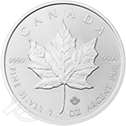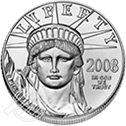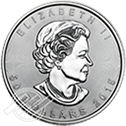Is the U.S. Dollar Collapsing?
Currency collapse and the strength of the U.S. dollar are legitimate concerns for investors, especially in today’s tumultuous economic and political environment. As the global economic landscape continues to shift, digital currencies become more popular, and emergent economic powerhouses like China continue to grow in importance, you might find yourself wondering if a currency crisis could grip the United States anytime soon.
Even though it’s an interesting thought experiment, the likelihood of the U.S. dollar collapsing is very low. Why? There are a handful of reasons. Because a currency’s value is largely determined by its demand, the U.S. dollar continues to be a highly sought-after currency. That’s far from the only reason, however.
Let’s explore the causes of historical currency collapse incidents and what might spark this catastrophe for the United States (and investors across the world).
Which Currencies Have Collapsed and Why
Currency collapse and hyperinflation aren’t rare phenomena. History offers plenty of examples of them. Since 1900, nations like Argentina, Hungary, Chile, Angola, Zimbabwe, and Germany have all experienced currency crises:
- Argentina’s recent currency collapse occurred thanks to external debt, economic mismanagement, and a horrific drought.
- The collapse of the Hungarian pengő occurred in 1946 thanks to hyperinflation after the government printed money to finance its post-war reconstruction.
- Much like Argentina, the Chilean currency crisis of the 1980s occurred largely thanks to external debt. Another contributing factor was the nation’s overdependence on international commodity markets.
- Angola experienced a currency collapse in the 1990s due to civil war and rampant inflation.
- The collapse of the Zimbabwean dollar occurred late in the first decade of the 2000s after hyperinflation, economic mismanagement, corruption, and agricultural decline collided.
- Germany’s currency collapse in the 1920s, thanks to hyperinflation, is among history’s most famous examples, as the government printed money to pay off reparations from World War I.
U.S. Dollar Strengths
What makes the U.S. dollar so resistant to hyperinflation and currency collapse? It’s the preeminent currency reserve for the world. Although it might see marginal declines in trade, it won’t see the full-scale demise that other currencies have. Listed below are a few contributing factors:
- The U.S. dollar still accounts for most global reserves. As a currency, the dollar dominates foreign exchange reserves, which are used for trade payments or currency support. In fact, the dollar remains the most held currency in the world, comprising nearly 60% of those reserves.
- Global trade is largely conducted in dollars. According to the Federal Reserve, the U.S. dollar accounted for 96% of North American trades between 1999 and 2019. Over that same period, it dominated the Asian markets as well. The only place where the dollar does not enjoy dominance is Europe, where the euro remains the preferred trade currency.
- The U.S. dollar is backed up by liquid, regulated financial markets. Because the U.S. has the largest bond and stock markets globally, its status as the world’s largest economy bolsters demand.
U.S. Dollar Weaknesses
Even though the U.S. dollar is one of the world’s most powerful currencies, it has a few weaknesses that warrant discussion. These drawbacks—however minor—include the following:
- Inflation risk: The dollar’s value is subject to inflation. As the cost of goods and services goes up, its purchasing power decreases. That can lead to a higher cost of living for individuals and families.
- Trade deficits: Large trade deficits can weaken the dollar. If the United States imports more than it exports, it must sell dollars to buy foreign currency to pay for those goods. This can lower the dollar’s value.
- Government debt: High levels of government debt can also put downward pressure on the dollar. If investors start worrying about the government’s ability to repay its debt, they may sell off their dollar holdings. This can lead to currency depreciation.
- Monetary policy: The Federal Reserve’s monetary policy decisions, such as lowering interest rates, can weaken the dollar. Low interest rates can make dollar-denominated assets less attractive to foreign investors, decreasing the dollar’s value.
Even though the dollar’s weaknesses are unlikely to cause collapse, it’s still wise for investors to diversify their investment portfolios just in case. Gold is a safe-haven asset for many reasons, including that it can hedge against currency devaluation. Historically, the dollar’s weakness has led to rising gold prices. That can help preserve your wealth over the long term.
What Would Happen if the U.S. Dollar Collapsed?
Let’s say the worst does happen and the U.S. dollar collapses. What would happen then? We’d see shock waves through the global economy:
- Savings and retirement accounts denominated in dollars could lose significant value. That would wipe out savings and investment accounts.
- Inflation would skyrocket, severely weakening consumers’ purchasing power.
- We would see a sharp drop in foreign investment as U.S. assets lose their attractiveness to international investors.
- If the U.S. loses its status as the global reserve currency, it could disrupt international trade.
How to Prepare for the Collapse of the U.S. Dollar
Even though many experts say the U.S. dollar is unlikely to collapse given the strength and size of the U.S. economy, it’s still important to prepare. If you have any concerns at all, consider taking the following steps:
Diversify Your Portfolio
We already know that gold’s value tends to go up when currency values decrease. Diversifying your portfolio to include gold can help offset potential losses due to market downturns and currency fluctuations. Purchasing precious metals for individual storage or Gold IRAs can help with this diversification.
Keep Up to Date on Economic Trends
They say ignorance is bliss, but financial ignorance could lead to real sadness. Staying up to date on the economy helps you make informed decisions about your finances and how global events can impact them.
There’s no shortage of economic information out there, but how do you know who to trust? Websites like Investopedia and NerdWallet help simplify financial matters for regular people. For more academic viewpoints, consider the Financial Times or The Wall Street Journal. Reputable news sources, including Reuters, Bloomberg, or CNBC, can help keep you abreast of current economic events and trends.
Avoid Debt
Avoiding high-interest debt is good advice in general because it’s a steppingstone to real financial freedom. But it’s especially good advice if you’re preparing for a dollar collapse. Recessions often lead to asset depreciation and income loss. You don’t want to feel buried by inflated debt payments.
If you already have outstanding debt, consider paying down the highest-interest debt first. Then, pay off other loans until you’re debt-free. Avoid taking on any new debt, including financing deals on large purchases, if you can help it.
Gold Investments Can Help You Rely Less on the Strength of the Dollar
While the U.S. dollar is a strong currency and the U.S. economy is fairly stable, savvy investors know that anything can happen. Diverse portfolios can be a real game changer and an excellent insurance policy if you want to prepare for eventual destabilization or currency collapse. That diversity includes the purchase of gold and other precious metals.
At Advantage Gold, we help you buy gold from trusted retailers and connect you with a Gold IRA that can safeguard your investment. If you’re considering buying gold as part of your retirement or financial future, request a free guide to Gold IRAs. You can also call to speak with one of our customer service agents today.



